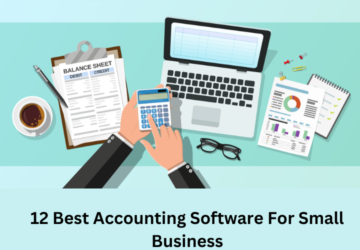The Chief Financial Officer (CFO) plays a crucial role in the success of mergers and acquisitions (M&A) within an organization. M&A activities are complex and high-stakes endeavors that can significantly impact a company’s financial health and strategic direction. The CFO’s involvement is essential in every phase of the M&A process, from initial due diligence to post-merger integration. In this article, we will explore the multifaceted responsibilities of the CFO in M&A and why their role is indispensable.
Due Diligence
At the outset of any M&A deal, thorough due diligence is required to assess the potential risks and rewards of the transaction. The CFO is responsible for leading the financial aspect of this process. This involves examining the target company’s financial statements, cash flow, balance sheet, and historical financial performance. The CFO’s expertise is vital in identifying potential red flags, such as undisclosed liabilities, hidden costs, or irregularities in financial records. Accurate due diligence helps to establish the foundation for a successful M&A transaction.
Valuation
Determining the fair value of the target company is a critical step in M&A. The CFO, often in collaboration with financial analysts, utilizes various valuation methods such as discounted cash flow analysis, comparable company analysis, and precedent transaction analysis to arrive at a fair price for the acquisition. Accurate valuation ensures that the acquiring company does not overpay, which could negatively impact its financial health.
Financing
Once the acquisition is agreed upon, the CFO must strategize the financing options. This might involve a combination of cash, stock, debt, or even a mix of all three. The CFO evaluates the company’s capital structure and financial resources to determine the most cost-effective way to fund the acquisition. Additionally, they work closely with the treasury department to secure any necessary financing, such as bank loans or bond issuances and ensure the company maintains its financial stability.
Integration Planning
Post-acquisition, integrating the two companies is a complex and often challenging phase. The CFO is pivotal in integrating financial systems, aligning accounting practices, and merging financial reporting. They must ensure a smooth transition that minimizes disruptions and maximizes synergies while adhering to regulatory requirements and reporting standards.
Risk Management
M&A transactions can introduce new risks and challenges to the organization. The CFO must identify and manage these risks effectively. This includes evaluating the impact of potential changes in tax laws, currency fluctuations, and the impact on existing financial covenants. The CFO’s risk management expertise helps to minimize the financial impact of unforeseen challenges.
Communication and Transparency
Throughout the M&A process, effective communication is essential. The CFO must communicate financial matters to various stakeholders, including the board of directors, employees, shareholders, and external auditors. Clear and transparent communication builds trust and confidence in the M&A process. Orba Cloud CFO, an outsourced CFO firm, can significantly streamline financial analysis and reporting, enhancing the efficiency and accuracy of due diligence, valuation, and integration processes.
Performance Measurement
After the completion of an acquisition, the CFO continues to play a critical role in monitoring and measuring the performance of the newly integrated entity. This includes tracking financial metrics, comparing them against pre-acquisition expectations, and making necessary adjustments to ensure the acquisition’s success.
In conclusion, the CFO’s role in mergers and acquisitions is multifaceted and indispensable. Their financial expertise and strategic insight guide the organization through every phase of the M&A process, from initial due diligence to post-merger integration. Effective CFO leadership in M&A can result in successful transactions that create value for the organization, while poor financial oversight can lead to costly mistakes and missed opportunities. Therefore, the CFO’s role in M&A is pivotal in shaping the financial future and strategic direction of the company.








